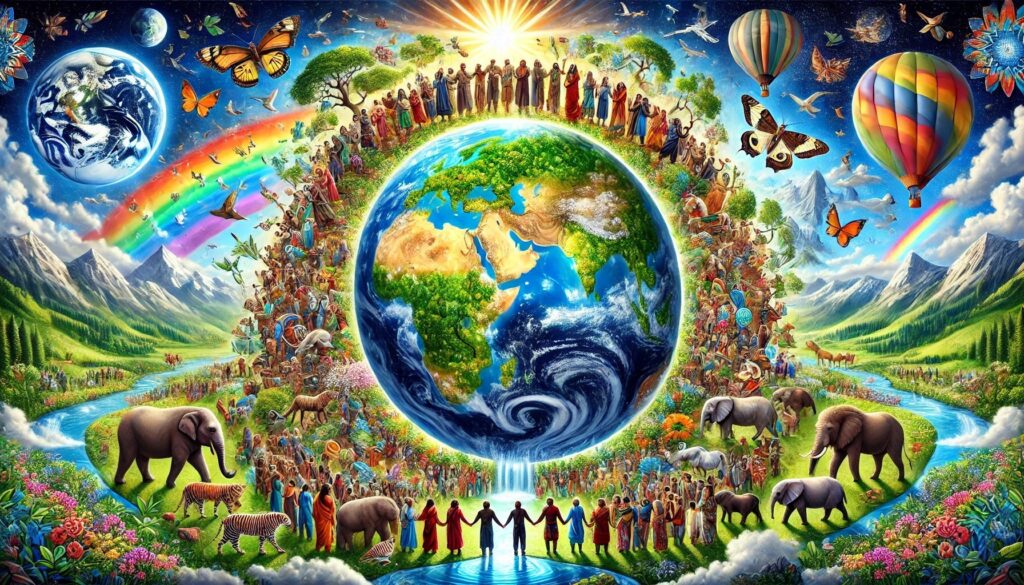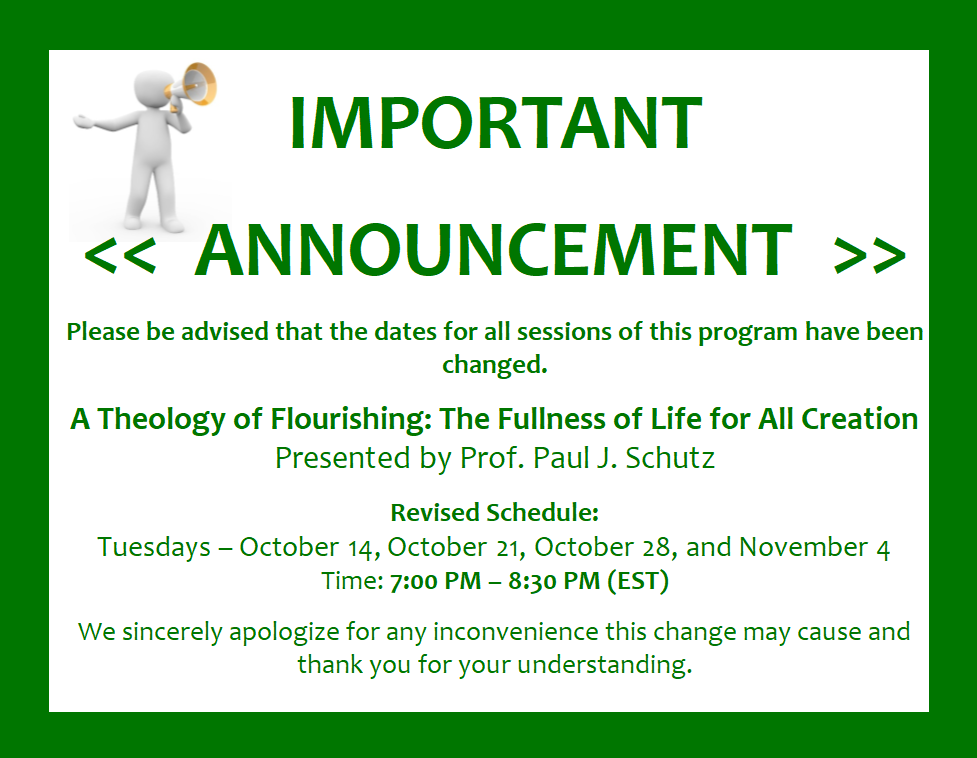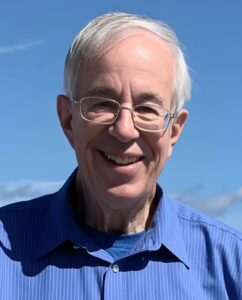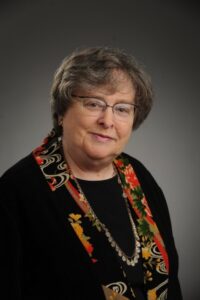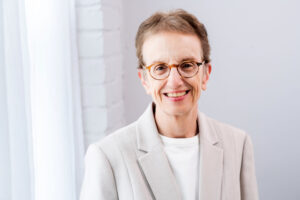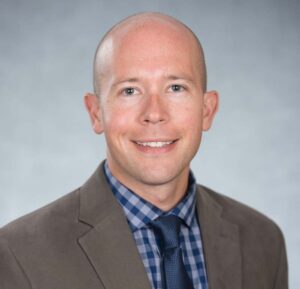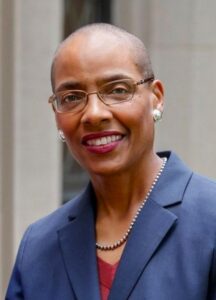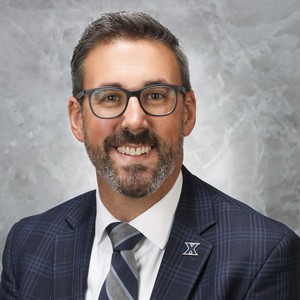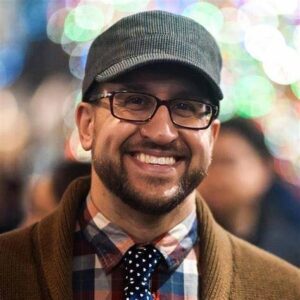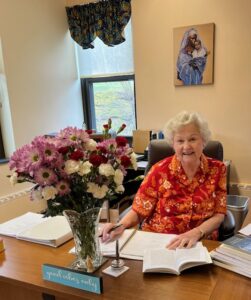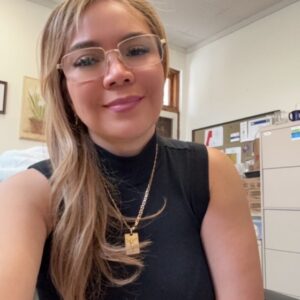Who We Are
The Maryknoll Sisters Center for One Earth Community is a platform for welcoming individuals and communities to immerse themselves in evolving religious paradigms, scientific discoveries and transformational initiatives resulting in a deeper commitment to contribute to the flourishing of the whole Earth Community. Collaboratively designed programs such as virtual conferences, online webinars, and video programs enable greater accessibility. Resources created by other institutes and movements that contribute to creating the coherence needed to work together and amplify our transformative efforts will be shared through various mediums.
Our Mission
Our evolving consciousness of the cry of the earth and cry of the poor compels Maryknoll Sisters to partner with all seeking to work for justice and the thriving of all life in this one Earth Community. Trusting in the power of God to do new things, our institute seeks to explore and engage evolving paradigms and convergent efforts which sustain healing and liberating change in our world.
Programs for 2025
| Date | Title | Speaker |
|---|---|---|
| May 20, 27, June 3-10 | Our Awakening Universe and the Future of Faith | John Haught, PhD |
| June 18-20 | One Earth Community: Reflections on God and the Earth | Elizabeth Johnson, CSJ |
| July 1-2 | Catholic Theology 2.0: How Science is Changing Our Understanding of God, Self and World | Ilia Delio, OSF |
| July 8 | A White Catholic’s Guide to Racism and Privilege | Dan Horan |
| July 15 | Resurrection Hope: A Future Where Black Lives Matter | Rev. Kelly Brown Douglas, PhD |
| July 22 | Beyond Inclusion: A Quiet Revolution of Belonging | Gillian Atkinson |
| July 29 | From Here to Equality: Reparations for Black Americans in the 21st Century | William Darity & A. Kirsten Mullen |
| September 17, 24, October 1, 8 | The Ethics of Encounter: Christian Neighbor Love as a Practice of Solidarity | Prof. Marcus Mescher |
| October 14, 21, 28, November 4 | The Theology of Flourishing: The Fullness of Life for All Creation | Prof. Paul J. Schutz |
Important Information
Cost of the Program
There will be no registration fee required to participate in our programs.
However, voluntary donations will be gratefully accepted to support participation in our programs.
All programs are virtual only.
Focus of the Spring Mini-Course
God, Earth and Cosmos
John F. Haught, PhD
Our Awakening Universe and the Future of Faith
(A series of four presentations by John F. Haught, Georgetown University)
Haught invites us to see the universe not as complete, but as still becoming—a sacred drama unfolding over billions of years. He introduces a theology that embraces evolution as the medium through which God’s creative love is expressed. Haught sees God as the depth dimension of reality, the future horizon drawing creation forward in love.
Over the past two centuries, scientists have learned that the universe is still coming into being. The cosmos is a great drama of awakening. But to what is it awakening? Are there good reasons in the new scientific story of the universe, for the renewal of hope on Earth? In four sessions, the presenter outlines a response to this question, as developed more fully in several of his books on God, faith and hope in the age of science.
- The New Cosmic Story and the Meaning of Faith
May 20, 2025, 7:00 pm- 8:30 pm (EST)
From the perspective of physics, the universe is a process of heat exchanges and energy transformations. But does the universe also have meaning or purpose? The late president of the Czech Republic, Václav Havel, remarked that global irresponsibility in our times—moral, political, and ecological—stems from the widespread assumption that our universe lacks a purpose. Is he right about this? This session offers some possible responses.
Lerner, Richard. The New Cosmic Story: Inside Our Awakening Universe. New Haven: Yale University Press, 2017.
- What does “God” Mean in the Age of Science?
May 27, 2025, 7:00 pm- 8:30 pm (EST)
Darwin, Einstein, Lemaître and other scientific experts have altered our whole understanding of the cosmos. The universe now seems to be a long but still unfinished story. Does the new understanding of the universe make any difference in how to think about God and the meaning of faith? Two of the most important religious thinkers of the 20th century, Paul Tillich and Teilhard de Chardin, offer fresh ways of responding to this question. This session explores and compares their new ways of thinking about God.
Teilhard de Chardin, Pierre. The Cosmic Vision of Teilhard de Chardin. Maryknoll: Orbis Press, 1922.
Rahner, Karl. What Is God? Mahwah: Paulist Press, 1986.
- Life, Evolution, and the Meaning of Suffering
June 3, 2025, 7:00 pm- 8:30 pm (EST)
What is it that makes life different from inanimate nature? What is the meaning of evolution? Given the long suffering of life prior to and after the origin of our species, can people of faith any longer make sense of the idea of a benign divine creator?
Haught, John F. Making Sense of Evolution: Darwin, God, and the Drama of Life. Louisville: Westminster John Knox Press, 2010.
McFague, Sallie. The Drama of Life. Louisville: Westminster/John Knox Press, 2010
Haught, John F. God After Darwin: A Theology of Evolution. 2nd ed. Boulder: Westview Press, 2007. (First published 2000).
- Teilhard de Chardin, Einstein, and the Meaning of Time: A Conversation
June 10, 2025 7:00 pm- 8:30 pm (EST)
Teilhard de Chardin and Albert Einstein had been living in the United States within miles of each other when they both died in the spring of 1955. If they had ever met and been able to talk about science, the universe, time, faith, God, and the meaning of life, how would the conversation have gone? This session, with the presenter as “moderator,” imagines a conversation between the two great scientists and religious thinkers as a way of thinking about the implications of science for faith and for our sense of God.
Lerner, Richard. God After Einstein: What Is Really Going on in the Universe? New Haven: Yale University Press, 2021.
- Key Insight: God is not the designer behind the blueprint, but the Divine Future—the source of hope and meaning in an evolving cosmos.
- Contribution: A compelling synthesis of faith and science, grounding Christian hope in the ever-expanding story of cosmic emergence.
John F. Haught, Ph.D, (Catholic University, 1970), is Distinguished Research Professor, Georgetown University, Washington, DC. He was formerly Professor and Chair of the Department of Theology at Georgetown. His area of specialization is systematic theology, with a particular interest in issues pertaining to science, cosmology, evolution, ecology and religion. He is the author of 24 books, including Teilhard de Chardin: The Cosmic Vision of Teilhard de Chardin (Maryknoll: Orbis Press, 2021) and God After Einstein: What Is Really Going on in the Universe? by Richard Lerner (New Haven: Yale University Press, 2021). He lectures internationally on issues in science and religion. In 2008, he received a “Friend of Darwin Award” from the National Center for Science Education.
May 20, 2025, 7:00 pm- 8:30 pm (EST)
May 27, 2025, 7:00 pm- 8:30 pm (EST)
June 3, 2025, 7:00 pm- 8:30 pm (EST)
June 10, 2025 7:00 pm- 8:30 pm (EST)
Elizabeth Johnson, CSJ
One Earth Community: Reflections on God and the Earth
This retreat will explore the gospel call to love God with all our heart and soul with a view toward seeing the living God as lover of the Earth, and the gospel call to love our neighbor as ourself with a view toward including nature as our neighbor. In conversation with S. Antoinette Gutzler MM, S. Elizabeth Johnson CSJ will probe these ramifications of seeing Earth as one splendid if threatened community. At this time of social and ecological peril, these reflections can inspire us to vigorous hope.
One Earth Community: Reflections on God and the Earth
Day 1: The Adventure of Creation
Day 2: Jesus and the Earth
Day 3: Spirituality and Ethics: Conversion to the Earth
Elizabeth Johnson, CSJ (Brentwood, NY) is a retired professor at Fordham University, where she was inducted into the university’s Hall of Honor. A native of Brooklyn, NY, she received her doctorate in theology from Catholic University of America in Washington, DC, and taught there for one decade before moving to Fordham University. For over half a century her work as a theologian has included teaching, mentoring, research and writing, editing, and public lecturing to church and academic groups at home and abroad. A former president of the Catholic Theological Society of America, she has authored numerous books and articles translated into over a dozen languages. Her most recent book, published by Orbis, is “Come, Have Breakfast: Meditations on God and the Earth.” This will form the basis for the retreat on “One Earth Community.
A final note: Elizabeth grew up loving the Maryknoll Sisters, as her two aunts were members of the community: S. Virginia Therese and S. Regina Johnson (Thomas Marie).
Elizabeth Johnson, CSJ
June 18, 2025, 3:00 pm – 4:30 pm (EST)
June 19, 2025, 3:00 pm – 4:30 pm (EST)
June 20, 2025, 3:00 pm – 4:30 pm (EST)
Ilia Delio, OSF
Catholic Theology 2.0: How Science Is Changing Our Understanding of God, Self & World
Ilia Delio sees the universe as God in the act of becoming. Steeped in Teilhard de Chardin’s evolutionary mysticism, she reads the cosmos as a sacred web of quantum entanglement, a dance of energy and matter where everything is interrelated. Her God is not distant but dynamically present, breathing through the ever-new.
Dr. Ilia Delio, OSF, holds the Josephine C. Connelly Chair in Christian Theology at Villanova University. Her area of research is systematic-constructive theology, with a focus on evolution, quantum physics, and artificial intelligence, and their implications for Christian doctrine and life. She is the author of twenty-five books, including The Not Yet God: Carl Jung, Teilhard de Chardin, and the Relational Whole, The Hours of the Universe, which won the 2022 Gold Nautilus Book Award, Making All Things New: Catholicity, Cosmology, and Consciousness, a finalist for the 2019 Michael Ramsey Prize, and The Unbearable Wholeness of Being: God, Evolution, and the Power of Love, for which she won the 2014 Silver Nautilus Book Award and a 2014 Catholic Press Association Book Award in Faith and Science. She is also the founder of the Center for Christogenesis, an online spiritual and educational resource for the integration of science, religion, and culture.
“In my own view, Ilia Delio’s work presenting Pierre Teilhard de Chardin’s vision shows us the most significant pathway we can travel toward a vibrant and beautiful Earth Community. With both passion of the heart and brilliance of the mind, Ilia presents a vision that combines science and spirituality. Her work is rare and precious achievement. She is one of the planetary leaders of our time. The more extensive the reach of her work, the better chance the Earth Community has for a beautiful future”. –Brian Thomas Swimme
Points to Explore over the Two Days:
- Why symbols and doctrines of Catholic theology are becoming obsolete.
- Why Catholicism has become too small to meet the needs of our dynamic cosmic life today.
- How can our core beliefs vitalize our lives? What do we need to let go of? What kind of inner disposition is required to co-create wholeness and unity?
July 1, 2025 7:00 pm- 9:00 pm (EST)
July 2, 2025 7:00 pm- 9:00 pm (EST)
- Key Insight: God is Love at the heart of matter, the deep connectivity of all things, calling us into communion and creativity.
- Contribution: A bold reimagining of theology for the age of technology and planetary consciousness, where spiritual evolution meets digital emergence.
Together, the theologians gift us with a living, relational, evolutionary theology—one that suffers with the Earth, honors the cosmos, and leans into the Lure of Tomorrow held in God’s unfolding grace.
Focus of Summer Mini-Course
Unmasking Racism, Awakening Hope
We are living in an age of deep reckoning—a time when the soul of society strains beneath centuries of injustice, and yet, within that struggle, the seeds of transformation stir. In this course, we dare to listen, to learn, and to rise. We journey together through the tangled roots of systemic racism and the living hope that justice can be born anew.
Prof. Dan Horan’s A White Catholic’s Guide to Racism and Privilege (2nd edition) invites readers, especially white Catholics, into the uncomfortable yet essential work of self-examination. His guide is not merely educational—it is pastoral, spiritual, and deeply personal. In a time when conversations about privilege are too often met with defensiveness or denial, Horan offers a compassionate yet unflinching mirror. His words challenge the silence of the pews and call forth the prophetic voice that must rise in solidarity.
Rev. Kelly Brown Douglas’s Resurrection Hope: A Future Where Black Lives Matter, with the clarity of a theologian and the fire of a prophet, compels us to imagine a future grounded in resurrection hope. Her book is a cry from the heart of the Black experience and a theological insistence that the crucifixion of Black lives in America is not God’s will. Through her lens, we encounter a faith that refuses to be complicit and a vision that insists Black lives must matter—not only in the streets but in the sacred heart of our shared humanity.
Gillian Atkinson’s presentation on Beyond Inclusion: A Quiet Revolution of Belonging calls us to deepen our collective inquiry—not simply who is included, but how we co-create spaces where every person is genuinely seen, valued, and empowered. This program offers a reflective approach that moves toward a justice-rooted, relational model of belonging. Belonging isn’t given—it’s co-created, rooted in justice, empathy, and lived experience. A quiet revolution begins within, empowering us to embody inclusion as a lived promise.
William Darity, Jr. PhD and Kirsten Mullen’s book From Here to Equality: Reparations for Black Americans in the 21st Century is an intense and scholarly call for reparations as a moral and economic necessity to redress centuries of racial injustice. The authors trace the deep scars of slavery, segregation, and systemic discrimination that have fueled the persistent racial wealth gap in America. They offer a rigorously researched case for comprehensive reparations, grounded not only in historical truth but also in economic justice. By quantifying the debt owed and outlining policy pathways, the book transforms abstract ideals into actionable change. Its impact lies in shifting reparations from a fringe demand to a central pillar of racial equity discourse.
Together, these texts serve as our compass and our call. At this crossroads of moral urgency and divine possibility, we are invited to interrogate history, confront our complicity, and cultivate a hope that is not passive but powerful—resurrection hope.
This mini- course is not just academic; it is spiritual formation. It is an invitation to walk the path of justice, to listen deeply, to speak truth, and to act with courage. The work is not easy. But it is holy. And it needs to begin now.
A White Catholic’s Guide to Racism and Privilege
A White Catholic’s Guide to Racism and Privilege by Daniel P. Horan is a book that aims to help white Catholics understand and address racism and white privilege. The book explores the concepts of racism, white privilege, and their impact on individuals and society, particularly within the context of the Catholic Church. This includes addressing hard realities that White people have typically been able to avoid, which, as Horan shows from his own experience comes from to the blissful ignorance afforded White people by an ingrained system of racism in both United States and the Church. Horan uses personal reflection and candid critique to help readers understand issues like common-sense racism and systemic racism, as well as the Catholic Church’s teachings on racism. The book also offers practical guidance on how to become a better ally and combat racism in daily life.
Dr. Daniel P. Horan is the Director of the Center for the Study of Spirituality and a professor of philosophy, religious studies, and theology at Saint Mary’s College in Notre Dame, Indiana. He is also an affiliated professor of spirituality at the Oblate School of Theology in San Antonio, Texas.
An influential scholar in the areas of spirituality, theology, and justice, Dr. Horan’s research and writing explore the intersections of faith, justice, and contemporary social issues. He is the author of several notable works, including his most recent books, Engaging Thomas Merton: Spirituality, Justice and Racism (Orbis Books, 2023), which examines the legacy of Thomas Merton in the context of social justice and Fear and Faith: Hope and Wholeness in a Fractured World (Paulist Press, 2024), which explores the transformative power of faith in an increasingly divided world. Dr. Horan’s work brings together theological reflection and practical engagement with the pressing social and spiritual challenges of our time. His scholarship continues to inspire readers and students alike, offering a deeper understanding of spirituality’s role in fostering justice, healing and hope.
“Important, urgent, and necessary, Daniel Horan’s book challenges all Catholics to face up to the essential challenge of racism in our Church and in society.”
–Rev. James Martin, S.J.
“Daniel Horan offers invaluable guidance and resources for white Catholics who hope to recognize and respond in faith to the anti-Black racism in ourselves, in our society, and within our Church.”
–Matthew J. Cressler, author of Authentically Black and Truly Catholic
July 8, 2025 7:00 pm – 8:30 pm (EST)
Resurrection Hope: A Future where Black Lives Matter
How do we really know that God cares when Black people are still getting killed? How long do we have to wait for the justice of God? I get it, that Christ is Black, but that doesn’t seem to be helping us right now. These questions from her son prompted theologian Kelly Brown Douglas to undertake this soul-searching reflection. The killing of George Floyd and the ongoing litany of Black victims raised questions about the persistence of white supremacy in this nation, leading her to reflect on how a “white way of knowing” has come to dominate American identity and even to shape the consciousness of Christians. In exploring the message of Confederate monuments and the “Make America Great Again” slogan, she examines the failures of even “good white Christians” and struggles with the hope that “Black Lives Matter,” before reaching deep into her own experience and the faith of Black folks to find her way back to Resurrection Hope. The book ultimately calls for a transformation of American society, urging readers to confront the deep-seated racism that persists in the nation and to actively work towards a future where Black lives truly matter.
Rev. Kelly Brown Douglas, Ph.D., is Interim President of the Episcopal Divinity School. From 2017 to 2023, she was Dean of the Episcopal Divinity School at Union Theological Seminary and Professor of Theology. She was named the Bill and Judith Moyers Chair in Theology at Union in November 2019. She also serves as the Canon Theologian at the Washington National Cathedral and Theologian in Residence at Trinity Church Wall Street. Prior to Union, Douglas served as Professor of Religion at Goucher College where she held the Susan D. Morgan Professorship of Religion and is now Professor Emeritus. Before Goucher, she was Associate Professor of Theology at Howard University School of Divinity (1987-2001) and Assistant Professor of Religion at Edward Waters College (1986-1987). Ordained as an Episcopal priest in 1983, Douglas holds a master’s degree in theology and a Ph.D. in systematic theology from Union.
Douglas is the author of many articles and six books, including Sexuality and the Black Church: A Womanist Perspective, Stand Your Ground: Black Bodies and the Justice of God, and Resurrection Hope: A Future Where Black Lives Matter, which won the 2023 Grawemeyer Award in Religion. Her academic work has focused on womanist theology, sexuality and the Black church.
“Kelly Brown Douglas is a towering theologian in this Age of Black Lives Matter who builds on and goes beyond the profound legacies of James Cone and James Baldwin, Katie Cannon and Delores Williams! Resurrection Hope takes us on a courageous and visionary journey full of brilliant scholarship, political struggle and spiritual determination.”
–Cornel West, Union Theological Seminary
July 15, 2025, 7:00pm – 8:30 pm (EST)
Beyond Inclusion: A Quiet Revolution of Belonging
Beyond Inclusion: A Quiet Revolution of Belonging is a transformative concept that invites participants to move past the language of diversity and inclusion into the deeper, soul-rooted work of cultivating true belonging. Through reflective practice, case studies, and storytelling, learners will examine how systems, cultures, and everyday interactions can either fracture or foster a sense of welcome. This course challenges the performative and embraces the relational—asking not merely who is included, but how we create spaces where all can thrive, contribute, and be seen without condition.
Rooted in the belief that belonging is not granted but built, this quiet revolution begins from within. Participants will explore the intersections of identity, power, and presence, while gaining tools to co-create environments of mutual care and co-liberation. With an emphasis on empathy, justice, and lived experience, the course empowers change makers, educators, and leaders to reimagine inclusion—not as a policy, but as a promise fulfilled in practice.
Gillian Atkinson (She/Her), M.B.A., SHRM-SCP., CDE, CPC
Gillian Atkinson has over 20 years of experience fostering inclusion and belonging in education, non-profit, and corporate sectors. She has facilitated over 500 workshops for an array of organizations. Gillian harnesses a unique ability to connect people through their similarities, while doing the work to truly appreciate their differences. She provides participants with the tools needed to seek and show compassion when having uncomfortable conversations about social identity. Through an empathetic lens Gillian supplies a judgment-free space to better understand each other as human beings and not as labels. Gillian currently serves as a part of the Senior Leadership Team at Columbia University as a Director for Columbia Health in New York City, N.Y. Ms. Atkinson holds an A.S. in Criminal Justice, a Bachelor of Business Administration and a Master of Business Management. She is also a Senior Certified Professional from the Society of Human Resource Management (SHRM-SCP), a Certified Diversity Executive (CDE) by the Institute for Diversity Certification and is an ICF-accredited Certified Professional Coach (CPC).
July 22, 2025, 7:00 pm – 8:30 pm (EST)
From Here to Equality: Reparations for Black Americans in the 21st Century
From Here to Equality: Reparations for Black Americans in the 21st Century by William Darity and A. Kirsten Mullen presents a powerful case for reparations as a remedy to the persistent racial wealth gap rooted in centuries of systemic oppression. The authors argue that the end of slavery did not mark the beginning of true freedom; rather, it was followed by a brutal era of Black Codes, convict leasing, and Jim Crow laws that continued to exploit and disenfranchise Black Americans. For instance, after emancipation, formerly enslaved people were denied access to the promised 40 acres and a mule—land that could have been the foundation of generational wealth. Instead, they were forced into sharecropping and targeted by white terror campaigns like the Wilmington coup of 1898 and the Tulsa massacre of 1921. Redlining in the 20th century, exclusion from the GI Bill, and job discrimination further locked Black families out of wealth-building opportunities. As a result, Black Americans hold only a fraction of the nation’s wealth, despite centuries of labor that built it. Darity and Mullen meticulously quantify the economic debt owed and propose reparations as not just restitution, but as national healing. Telling this truth is essential to dismantling myths of meritocracy and confronting the nation’s legacy of racial injustice. Reparations are not a gift, but a long-overdue justice—an affirmation of Black history and a necessary path to equality.
William Darity Jr. PhD. is a distinguished American economist and social scientist renowned for his extensive research on racial and ethnic economic disparities. He holds the position of Samuel DuBois Cook Professor of Public Policy, African and African American Studies, and Economics at Duke University, where he also directs the Samuel DuBois Cook Center on Social Equity. Darity’s academic journey culminated in a PhD in economics from the Massachusetts Institute of Technology in 1978. He is widely recognized as the founder of stratification economics, a field that examines how economic disparities are structured and perpetuated across various social groups. His prolific scholarship includes over 250 publications, and is being named a Distinguished Fellow of the American Economic Assoc. in 2024.

“From Here to Equality is one of the most important works on reparations in American history—scholarly yet searing, empirical yet passionately human. Darity and Mullen offer not just a case, but a call—to conscience, to action, to repair.”
— Ibram X. Kendi, author of How to Be an Antiracist
July 29, 2025, 7:00 pm – 8:30 pm (EST)
Focus of the Fall Mini-Course
In a time marked by division and disconnection, two voices rise to remind us of the sacred call to communion:
Prof. Marcus Mescher in The Ethics of Encounter: Christian Neighbor Love as a Practice of Solidarity calls us to radical hospitality, to meet the Other not with suspicion but sacred recognition. He outlines an ethic rooted in solidarity, mercy, and mutual transformation—where encounter becomes the soil of justice. He invites us into an ethic of encounter—where solidarity, compassion, and mutual transformation are not idealistic dreams, but necessary practices.
Paul Schutz in The Theology of Flourishing: The Fullness of Life for All Creation, looking toward what might yet be, envisions thriving not as personal gain but as communal flourishing, a theological reclamation of abundance and belonging in an age marked by fragmentation. He invites us to reimagine what it means to live well with and for others in communities where everyone has the chance to grow, to heal, and to live fully. He reframes thriving as a theological path—one grounded in justice, community, and the abundant life Jesus spoke of. His theology reminds us that justice and joy are not separate—that we are made to thrive together.
Together, these works converge at a profound intersection: the conviction that the sacred lives in relationship, that to thrive is to encounter, and that a just world begins wherever we choose to see the divine in one another. These books point us toward a faith that is not passive or private, but embodied and communal. They remind us that to encounter one another with love is to participate in God’s dream for the world. And to thrive—as Scripture teaches—is to seek the good of our neighbors, the healing of creation, and the coming of God’s Kindom, here and now.
The Ethics of Encounter: Christian Neighbor Love as a Practice of Solidarity
Resource Person: Prof. Marcus Mescher is Associate Professor of Christian Ethics at Xavier University. He holds a Ph.D. from Boston College and specializes in Catholic social teaching and moral formation. His research and writing concentrate in the following areas: human dignity and rights; social/ environmental justice for the global common good; how moral agency is impacted by cultural context and digital technology; the moral dimensions of friendship; sexual justice and the ethics of marriage and family life; liberation theology and inclusive solidarity; healing the psychological, spiritual, social, and moral harm caused by clergy abuse.
Dr. Mescher has written dozens of popular and academic articles; he has published essays in the Journal of Moral Theology, the Journal of Catholic Social Thought, Jesuit Higher Education, and The Journal of the Society of Christian Ethics. He is the author of The Ethics of Encounter: Christian Neighbor Love as a Practice of Solidarity and Fratelli Tutti Study Guide).
Signature Courses of Dr. Mescher:
- From Service to Solidarity
- Marriage and Family
- Spirituality and Solidarity
- Ethics in a Time of Planetary Crisis
- Theo-ethics of Ministry
“The Ethics of Encounter: Christian Neighbor Love as a Practice of Solidarity puts the heart back into academic ethics: love of neighbor as deep connection, where we discover our common humanity and our unity in God. Any Christian seeker will find this work uplifting and spiritually rich. A gem for classroom use, it unites theology and a faithful way of life, with relatable examples such as social media, service trips, and climate change. No abstractions here! Mescher gives us a salutary dose of idealism and the hope we need in these fractious and discouraging times.” – Lisa Sowle Cahill, Blessed Are the Peacemakers: Pacifism, Just War, and Peacebuilding
Sept. 17, 2025, 7:00 pm – 8:30 pm (EST)
Sept. 24, 2025, 7:00 pm – 8:30 pm (EST)
Oct. 01, 2025, 7:00 pm – 8:30 pm (EST)
Oct. 08, 2025, 7:00 pm – 8:30 pm (EST)
A Theology of Flourishing: The Fullness of Life for All Creation
Resource Person: Prof. Paul J. Schutz, a native of Evansville, Indiana, embarked on his academic journey with a Bachelor of Arts in English from Boston College. His path led him to Fordham University, where he earned both a Master of Arts and a Ph.D. in Systematic Theology. His doctoral dissertation delved into the theological writings of Jesuit astrophysicist William R. Stoeger, S.J., proposing an ‘ecopolitical’ theology aimed at the flourishing of all creatures.
Currently serving as an associate professor of religious studies at Santa Clara University, Schutz’s research intricately weaves the threads of science and theology. He focuses on the Christian understanding of creation, emphasizing how scientific insights can enrich religious narratives about humanity’s relationship with the broader cosmos. His scholarly pursuits extend to ecological theology, liberation and feminist theologies, and the dialogue between theology and science.
Beyond academia, Schutz’s voice resonates in broader conversations about faith and identity. Notably, he has contributed to discussions on gender and sexuality within the church, advocating for a more inclusive and scientifically informed understanding. Through his harmonious blend of scholarly rigor, pedagogical passion, and commitment to justice, Paul J. Schutz continues to illuminate the intricate dance between the divine and the cosmos, inspiring a vision of creation where all beings can flourish.
“With deep scholarship and lyrical prose, Paul J. Schutz . . . proposes a new paradigm for a theology that is radically reoriented to flourishing as God’s intent for creation . . . beautifully tracing through Scripture, great early theologians, medieval mystics, and masters of modern theology, including Elizabeth Johnson, Karl Rahner, Ignacio Ellacuría, and Johann Baptist Metz. A Theology of Flourishing: The Fullness of Life for All Creation offers a joyful vision of God’s love, ever-present in the Spirit, renewing hope for the lovers of the earth and all families of life, and issuing a powerful call to action for a praxis of justice and care for our common home.”- Erin Lothes, Center for Earth Ethics
Oct 14, 2025, 7:00 pm – 8:30 pm (EST)
Oct 21, 2025, 7:00 pm – 8:30 pm (EST)
Oct 28, 2025, 7:00 pm – 8:30 pm (EST)
Nov 4, 2025, 7:00 pm – 8:30 pm (EST)
Contact Information
Sister Helene O’Sullivan, Director: 914-941-0783 ext. 5671; [email protected]
Angela Abad, Admissions Coordinator: 914-941-0783 ext. 5631 (8:30 AM – 12:30 PM, Monday to Friday); [email protected]

